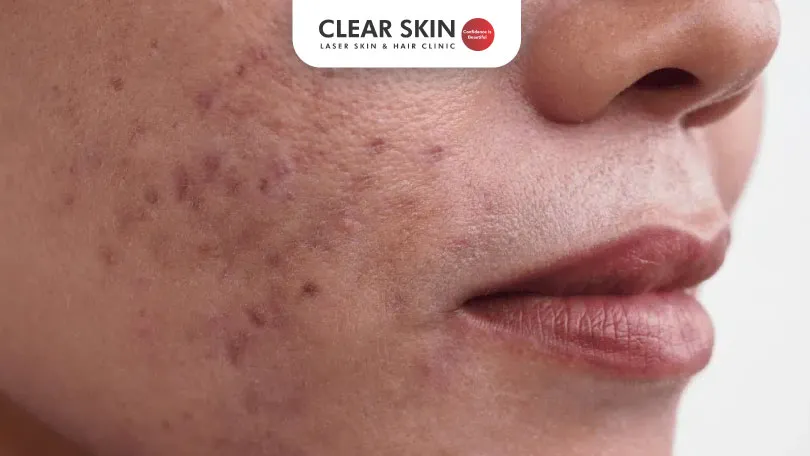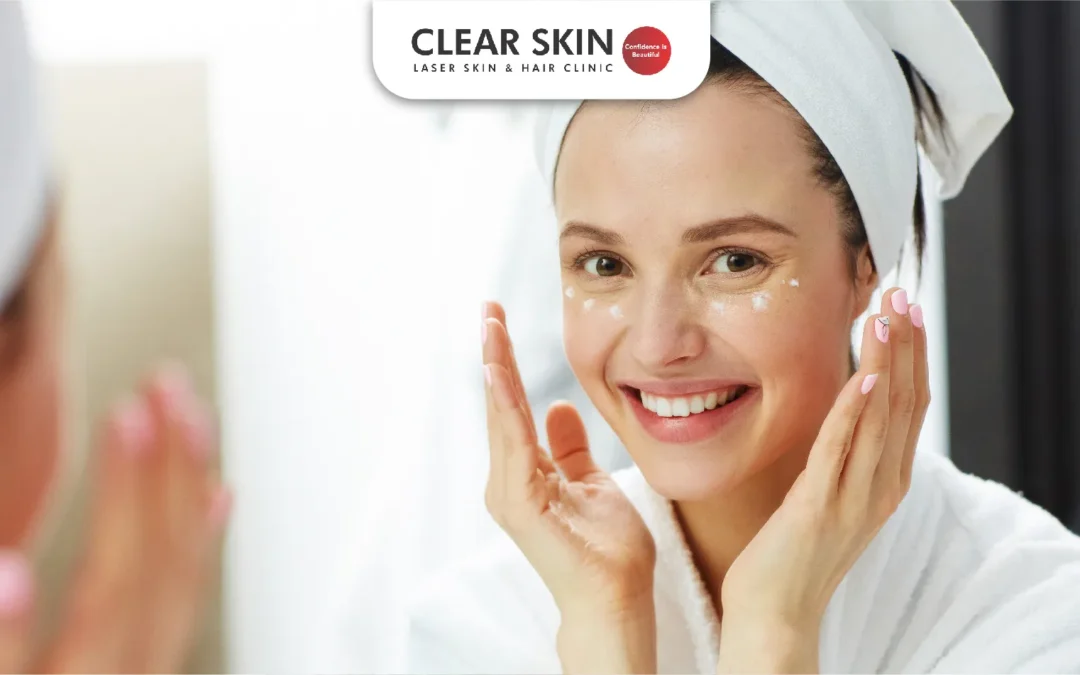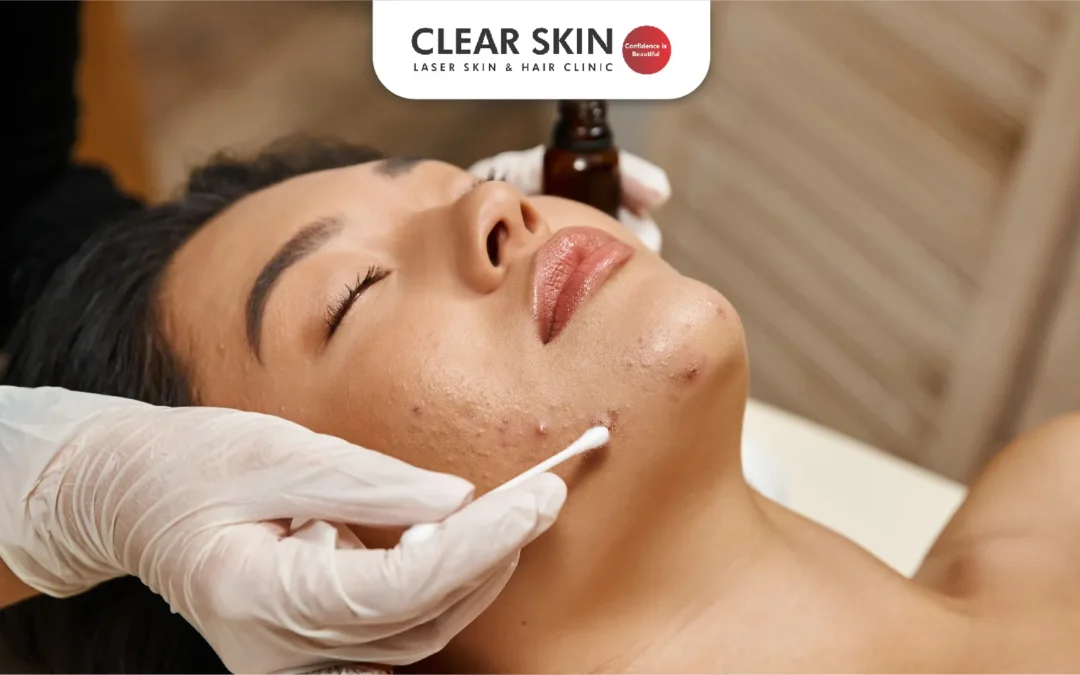Video / Acne during pregnancy
Why Do I Get Acne During Pregnancy?
Reviewed By:
Category: Acne, Acne in adulthood
This puzzling occurrence can be attributed to a combination of factors related to hormonal fluctuations, immune system changes, and skincare habits.
Pregnancy is a transformative journey marked by a multitude of physical and hormonal changes. While the anticipation of bringing a new life into the world is exciting, it often comes with unexpected challenges, including changes in skin health. One common concern that many pregnant individuals face is the sudden onset or exacerbation of acne. This puzzling occurrence can be attributed to a combination of factors related to hormonal fluctuations, immune system changes, and skincare habits. In this article, we delve into the frequently asked question: “Why do I get acne during pregnancy?”
Hormonal Havoc: The Culprit Behind Pregnancy Acne
Hormones play a pivotal role in pregnancy, orchestrating a symphony of changes within the body. One of the primary factors contributing to pregnancy-related acne is the surge in hormone levels, specifically androgens. Androgens are typically associated with male hormones, but they are also present in females and can lead to an increase in oil production. This excess oil, known as sebum, can clog pores and create an environment conducive to acne development.
Immune System Dynamics and Inflammation
The immune system undergoes shifts during pregnancy to support the developing fetus while ensuring the mother’s well-being. These changes can impact the body’s inflammatory responses, which in turn may contribute to the appearance of acne. The altered immune response can lead to increased inflammation in the skin, making it more susceptible to breakouts.
The Role of Stress
Pregnancy, despite its joyous moments, can also be stressful as individuals navigate physical, emotional, and lifestyle adjustments. Stress has been linked to acne flare-ups in non-pregnant individuals, and it can have a similar effect during pregnancy. The release of stress-related hormones can exacerbate acne by promoting oil production and triggering inflammation.
Skincare Routine Modifications
A shift in your skincare routine may also play a role in the development of acne during pregnancy. Some individuals may switch to products they believe are safer for pregnancy but are not compatible with their skin type, leading to breakouts. Additionally, hormonal changes can make the skin more sensitive, so products that were once well-tolerated might now cause irritation.
Genetic Predisposition
Genetics can also influence the likelihood of experiencing acne during pregnancy. If you have a family history of acne or are prone to breakouts under certain circumstances, you might be more susceptible to pregnancy-related acne.
Popular Videos

What Causes Hyperpigmentation After Acne and How Can It Be Treated?
Home / Blogs / Hyperpigmentation after acneWhat Causes Hyperpigmentation After Acne and How Can It Be Treated?Reviewed By: Dr Dhananjay chavanUpdated on: 23rd December, 2024Acne may be gone, but has hyperpigmentation become your new concern? Don’t worry, you’re...

10 Common Skincare Mistakes You Might Be Making and How to Avoid Them
Home / Blogs / 10 Skincare Habits You Need to Change Right Now for Glowing Skin10 Skincare Habits You Need to Change Right Now for Glowing SkinReviewed By: Dr Dhananjay chavanUpdated on: 17th December, 2024Skincare is an essential part of maintaining healthy,...

Top Treatments for Acne Scars
Home / Blogs / Top Treatments for Acne ScarsTop Treatments for Acne ScarsReviewed By: Dr Dhananjay chavanUpdated on: 16th December, 2024Acne can leave behind scars that go beyond skin-deep, affecting confidence and self-esteem. The good news? Modern dermatology...
We Got Your Back! Ask Us Anything On Your Mind!
Reach out to us on
Managing Pregnancy Acne: Tips and Recommendations
Gentle Cleansing: Opt for a mild, non-comedogenic cleanser that won’t strip your skin of its natural oils. Harsh cleansers can exacerbate dryness and trigger more oil production.
Avoid Over-Cleansing: Washing your face excessively can strip your skin of essential oils, leading to increased oil production as a defensive mechanism. Pregnancy-Safe
Hydration: Keeping your skin hydrated is crucial. Consider using a gentle, pregnancy-safe moisturizer to prevent dryness and irritation.
Pregnancy-Safe Products: Consult your healthcare provider or a dermatologist to identify skincare products that are safe to use during pregnancy. Ingredients like salicylic acid and retinoids are best avoided.
Healthy Diet: Eating a balanced diet rich in fruits, vegetables, and whole grains can support your skin’s health.
Stress Management: Engage in stress-relieving activities such as meditation, yoga, or gentle exercise to help keep stress levels in check.
Hands Off: Resist the urge to pick at your acne. Picking can lead to scarring and worsen inflammation.
When to Consult a Dermatologist?
If your pregnancy acne is causing significant discomfort, persistent breakouts, or emotional distress, it’s advisable to consult a dermatologist. They can offer personalized recommendations and potentially prescribe safe treatments if necessary.
In conclusion, pregnancy acne is a complex interplay of hormones, immune system dynamics, genetics, and skincare practices. While it can be frustrating, understanding the underlying causes can empower you to make informed decisions about your skincare routine and seek professional guidance when needed. Remember that every pregnancy is unique, and what works for one person may not work for another. With proper care and attention, you can manage and minimize the impact of acne during this remarkable journey of motherhood.
Didn’t Find What You Were Looking?Please
Contact Us.
We are committed not only to treating you, but also educating you.

